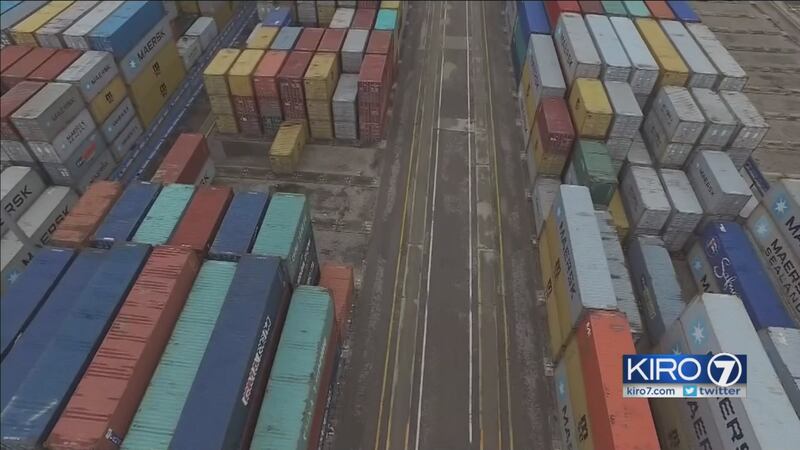SEATTLE — The US is on the brink of a trade war with Canada after ordering tariffs on its longtime ally, and experts say it could cause rising prices on both sides of the border.
The steel and aluminum tariffs announced Thursday are also on the European Union and Mexico. Countries within the EU, as well as Mexico and Canada, have rolled out or are threatening to roll out their own tariffs in response.
Scroll down to continue reading
More news from KIRO 7
- Reward for info leading to missing Bonney Lake teen increases to $5,000
- Fight at Lake Stevens park caught on camera
- DEA 'waiting for analysis': Kratom may soon be banned
- Skagit County golf course vandalized
- Tacoma Mall's Sears on latest list of store closings
Mexico struck first, vowing to slap tariffs on U.S. products, including pork and sausage, blueberries, cheese and apples.
The last item is a concerning one for the Washington state apple industry; apples are the state's biggest agricultural crop by far.
"Mexico is the No. 1 buyer of Washington apples," Matt Morrison, CEO of the Pacific NorthWest Economic Region, said. "Canada's the No. 2. We are integrated, and this is going to impact us if we don't turn it around."
Canada announced its own tariffs on U.S. steel and aluminum, and listed dozens more U.S. products that could have new tariffs as well. The items include yogurt, chocolate, cucumbers, toilet paper, washing machines and lawn mowers.
"We are imposing dollar-for-dollar tariffs for every dollar levied against Canadians by the U.S.," Chrystia Freeland, Canada's foreign affairs minister, said.
"These tariffs are totally unacceptable," Prime Minister Justin Trudeau said. "For 150 years, Canada has been the United States' most steadfast ally."
Morrison pointed out that Washington is the most trade-dependent state in the country.
"It doesn't matter if they're coming from Canada or Mexico -- the price of steel will go up and the price of aluminum will go up, and everything else. This is going to have an impact on our economy," Morisson said.
Mary Hernandez said she'll feel the impact at the grocery store.
"It's going to impact each one of us individually," she said, "because what I paid a dollar and a half for this week, I'm going to pay for, two or three dollars, next week."
KIRO 7 contacted Boeing to find out if the new tariffs would affect production.
Boeing responded with a written statement that said it "relies on U.S. suppliers for approximately ninety percent of our end-use aluminum. Because of the way we manage that portion of our supply chain, we do not see these steel and aluminum tariffs as having a material impact on our business, though we continue to evaluate the broader impact of these actions on our suppliers and global trading relationships."
This spring, we told you about concerns from Washington cherry farmers.
After the U.S. slapped tariffs on certain Chinese imports, China retaliated with tariffs of its own on fruit from the U.S.
Cox Media Group








